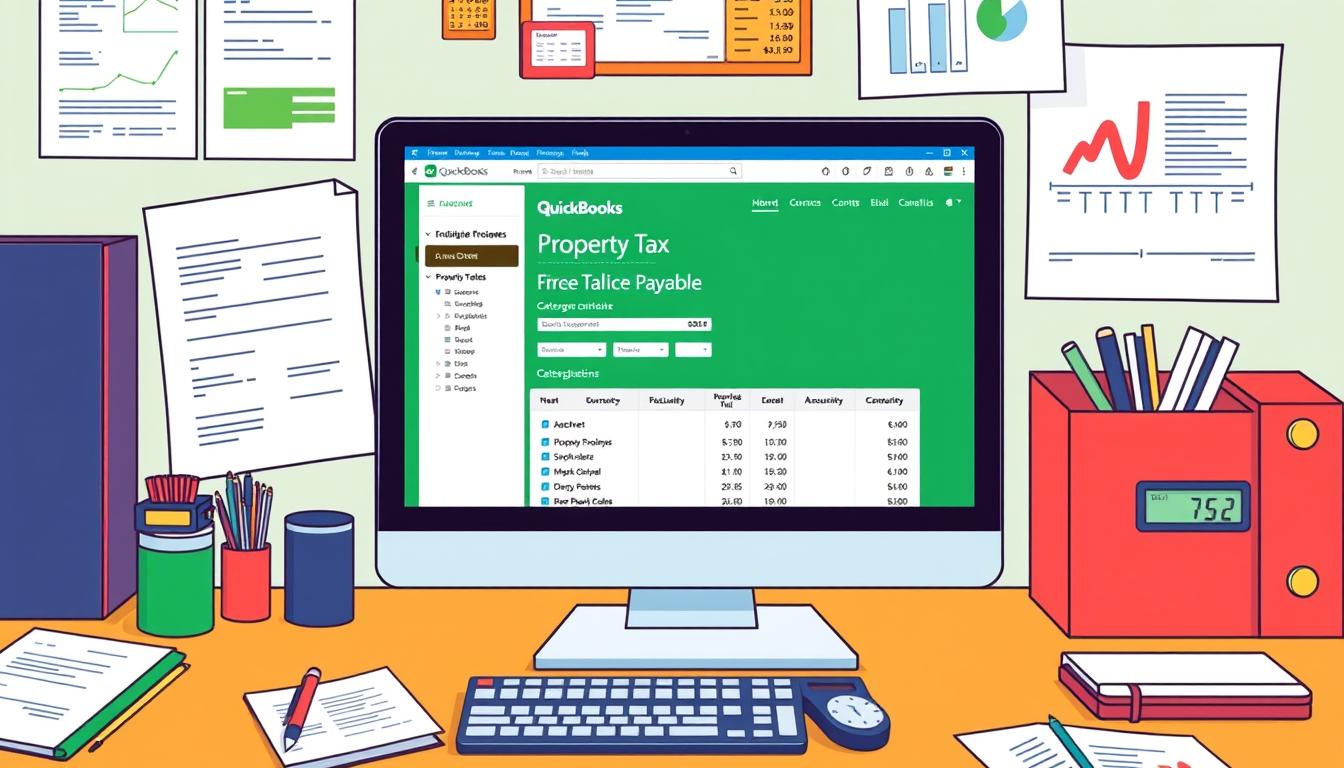
How expensive is quickbooks loan software

Table of Contents
Knowing the cost of QuickBooks loan software is key for businesses. It helps them manage loans better. The price of QuickBooks software changes based on its features. It’s important to find what fits your financial needs best.
This article will explore the costs of QuickBooks loan software. We’ll look at its pricing, features, and value for business finances.
Key Takeaways
- QuickBooks loan software offers various pricing plans catering to different business sizes.
- Understanding the features is important to determine the right investment.
- Loan management efficiencies can be gained through QuickBooks software.
- Comparing QuickBooks software pricing with other loan management tools is beneficial.
- Beneath the price, consider potential hidden fees that may arise.
- Long-term value should also weigh in on your decision-making process.
Understanding QuickBooks Loan Software Costs
When looking at the QuickBooks software cost, businesses must think about several factors. It’s key to understand loan management software pricing for good budgeting and financial planning.
One big cost is the initial subscription fees. These fees change based on the plan you choose. They affect your immediate costs and your long-term budget. You might also need to pay for installation, especially if you get help from a pro.
There are also extra costs for things like software updates, tech support, and training. These can add up over time and change the total cost of using the software.
The table below shows how different QuickBooks loan software packages compare in cost:
| Software Version | Initial Cost | Monthly Subscription | Support Fees | Upgrade Costs |
|---|---|---|---|---|
| Basic Package | $200 | $25 | $5/month | $50 |
| Standard Package | $400 | $50 | $10/month | $75 |
| Premium Package | $600 | $75 | $15/month | $100 |
This table helps businesses see the cost analysis of each package. It helps them make choices that fit their budget. Knowing these costs well helps businesses make smart choices about QuickBooks loan software.
Features of QuickBooks Loan Software
QuickBooks loan software has key features to help manage loans for businesses. It’s important for companies to know these features to improve their finances. The software comes with tools for accounting that meet different needs.
Key Functionalities
The QuickBooks software features include a standout loan tracking function. This lets businesses keep an eye on loan amounts, repayment plans, and interest rates. It also has payment scheduling and financial reporting to help see the financial health clearly.
- Loan Tracking: Comprehensive oversight of loans and payments.
- Financial Reporting: Detailed insights into loan performance and trends.
- User Interface: Intuitive design for easy navigation and operation.
- Accounting Tools: Integrated systems for enhanced financial management.
Integration Capabilities
QuickBooks integration is key to better operations. It works well with many third-party software apps. This makes managing data more efficient for businesses.
Using QuickBooks loan software in their financial systems helps companies. They can:
| Feature | Benefits | Integration Potential |
|---|---|---|
| Loan Tracking | Streamlined monitoring | Compatible with CRM and payroll systems |
| Financial Reporting | Informed decision-making | Links with business intelligence tools |
| User Interface | Improved usability | Integrates with multiple device types |
| Accounting Tools | Comprehensive financial control | Works alongside existing systems |
Different Pricing Plans for QuickBooks Software
Businesses have two main choices with QuickBooks: the Basic Plan and the Premium Plan. Each plan has features for different business sizes and needs. Knowing about these plans helps choose the right one for smooth financial management.
Basic Plan Overview
The QuickBooks basic plan is great for small businesses and startups. It has key features for loan management, like tracking and reminders. But, it lacks advanced features that growing firms might need.
Premium Plan Insights
The QuickBooks premium plan is for growing businesses needing more. It offers advanced features like detailed reports and user controls. This plan helps businesses scale up, making loan management easier for medium to large businesses.
Comparing QuickBooks Software with Other Loan Management Tools
When choosing loan management tools, users often compare QuickBooks with other software. This comparison is key for both cost and functionality. A detailed pricing analysis shows how QuickBooks stacks up against competitors in terms of value and features.
Cost Comparison
It’s important to understand the pricing when looking at QuickBooks and other loan management tools. Here’s a comparison of typical costs for QuickBooks and other software:
| Software | Cost per Month | Features Included | QuickBooks Advantages |
|---|---|---|---|
| QuickBooks | $25 – $150 | Loan tracking, financial reporting, invoicing | Seamless integration with accounting, user-friendly interface |
| Competitor A | $30 – $130 | Loan management, tracking payments | Basic functionality, lacks advanced reporting |
| Competitor B | $40 – $120 | Payment reminders, invoice creation | Less comprehensive accounting features |
Feature Comparison
Comparing software features shows what QuickBooks offers compared to others. QuickBooks has unique advantages:
- Integration Capabilities: QuickBooks works well with many finance apps, making things more efficient.
- Robust Reporting: It has detailed analytics and reports for better decision-making.
- User Experience: QuickBooks is easy to use, making loan management simple.
These benefits make QuickBooks a top choice for businesses looking for reliable loan management solutions.
Factors Influencing the Price of QuickBooks Software
The cost of QuickBooks software changes based on several important factors. These pricing factors ensure the software fits the business’s needs without being too expensive.
Business size and type play a big role. Small businesses might find the QuickBooks software cost fits their basic needs. But, bigger companies need more features, which raises the price. The business type also matters; for instance, retail needs more inventory management than service-based businesses.
The number of users also affects the QuickBooks software cost. More users mean higher fees. Choosing the right plan is key to balancing cost and features.
Knowing these factors helps businesses understand the total cost of QuickBooks software. This knowledge helps in planning budgets to fit these needs.
Discounts and Promotions on QuickBooks Loan Software
Businesses using QuickBooks loan software can find many discounts and promotions all year. Knowing about these deals can help save a lot on software costs. Seasonal promotions happen around holidays or the end of the fiscal year. Companies offer price reductions to get more subscriptions or renewals. Buying at the right time can save businesses a lot when they upgrade or get new QuickBooks solutions.
Seasonal Offers
QuickBooks has special deals at certain times of the year. These deals can save money and offer better services. Here are some key times for these promotions:
- Tax season – Usually between January and April.
- Black Friday and Cyber Monday – In late November.
- Back-to-school season – Around July and August.
These seasonal promotions are great for new customers to get discounts. Existing users can also get lower fees or bundle deals.
Loyalty Discounts
QuickBooks has a loyalty program for long-time users. It offers discounts to keep customers coming back. Long-term users can save money by staying with QuickBooks. Here are some loyalty benefits:
- Exclusive discounts on subscription renewals.
- Discounts on additional services or products.
- Special offers based on the duration of subscription.
Investing in QuickBooks gives users access to these special rewards. It shows QuickBooks’ dedication to keeping its customers happy with valuable benefits.
Customer Reviews: Is QuickBooks Loan Software Worth the Price?
Customer reviews are key when looking at software like QuickBooks loan software. Feedback from users helps us see what’s good and what’s not. Many say they’re happy with QuickBooks because it’s easy to use and works well.
They like how it manages loans, works with other financial tools, and has great customer support. This makes QuickBooks a top choice for many.
User Experiences
People have different views on QuickBooks, but a common point is clear. It makes managing money easier, especially for small businesses and financial advisors. Some find it hard to learn the advanced parts, but most are happy with it.
Expert Opinions
Experts agree with users, saying QuickBooks is great for many businesses. Financial advisors praise its detailed reports and how well it connects with other tools. They say it’s worth the cost because of all it can do.
| Aspect | User Feedback | Expert Reviews |
|---|---|---|
| User Interface | User-friendly with easy navigation | Highly rated for simplicity and clarity |
| Features | Effective loan management and integration | Comprehensive and versatile for businesses |
| Customer Support | Responsive and helpful | Supported by industry professionals |
| Pricing | Considered fair for the value offered | Competitive compared to other tools |
How to Budget for QuickBooks Loan Software
Effective budgeting for software like QuickBooks loan software is key. It helps you get the most out of it for your financial needs. First, look at the total cost, including the purchase, maintenance, and any future upgrades. Knowing these costs is vital for good QuickBooks financial planning.
Think about what your firm really needs. Do you need basic or advanced features? This affects both the upfront cost and ongoing expenses like updates and support. Using cost management strategies helps you spend wisely without going over budget.
Don’t forget about training costs. Good training ensures your team uses the software to its fullest. Include the costs of training, whether it’s in-person or online, in your budget.
Also, plan for future growth. As your business expands, so will your loan management needs. Budgeting for future upgrades or expansions to your QuickBooks loan software helps avoid financial problems later.
| Budgeting Consideration | Details |
|---|---|
| Total Cost of Ownership | Software purchase, maintenance, upgrades |
| Team Training Expenses | Costs for training sessions, materials |
| Future Scaling | Budget for expansions, feature upgrades |
Potential Hidden Fees in QuickBooks Loan Software
It’s important for businesses to know about hidden fees in QuickBooks loan software. Subscription costs can sometimes surprise you, affecting your budget. Be aware of extra charges that might not be clear at first.
Subscription Costs
Many businesses don’t realize the full cost of QuickBooks loan software. The initial price might seem clear, but hidden fees can add up. These fees come from different places, like:
- Upgrade Charges: Moving to a higher service tier can cost extra.
- Add-On Features: Extra features like advanced reporting or integrations cost more.
- Transaction Fees: Some plans charge for certain transactions.
Knowing about these fees helps avoid unexpected costs. Always read the fine print and ask QuickBooks about any unclear points before signing up.
| Fee Type | Description |
|---|---|
| Basic Plan Subscription | Standard monthly fee with limited features. |
| Upgrade Fee | Additional cost to access premium features. |
| Add-On Features | Fees for extra functionalities not included in the basic plan. |
| Transaction Fees | Charges per transaction for specific actions. |
Long-Term Value of QuickBooks Loan Software
Investing in QuickBooks loan software can bring big benefits to businesses. It helps make financial processes smoother. An cost-benefit analysis shows that the initial cost is worth it because of the efficiency and productivity it brings.
Users say automating loan management cuts down on paperwork and mistakes. This means more time saved and accurate financial reports. Over time, the savings from using QuickBooks far exceed the cost.
QuickBooks makes tracking and reporting easier. It also helps businesses follow rules and regulations. When looking at ongoing costs, the benefits of QuickBooks become clear, offering peace of mind and financial gains.
In short, QuickBooks loan software is a wise choice for businesses. It supports long-term growth and efficiency.
Alternatives to QuickBooks Software
Looking into QuickBooks alternatives reveals a range of loan management tools for different business needs. Many companies look for software that meets their needs without breaking the bank.
Some top choices include:
- Xero: A top pick in accounting, Xero has great loan management features and easy integration.
- FreshBooks: Great for small businesses, FreshBooks makes tracking loans easy and offers invoicing too.
- Zoho Books: It combines strong financial reports with loan management to help businesses grow.
Choosing the right loan management options depends on your business’s specific needs. It’s important to compare each tool’s features, ease of use, and support. This helps find the best match for your budget and needs.
Choosing the Right QuickBooks Software for Your Business
Choosing QuickBooks needs careful thought to match your business needs. Here are some key questions to help you:
- What is the size of your business? Small businesses have different needs than medium or large ones.
- What financial goals do you have? Knowing your goals helps you make the right choice.
- What integrations do you need? Check if your current tools work with QuickBooks.
- How many users will use the software? Different plans have different user limits.
This guide helps you understand what you need. Knowing your workflow and processes is key. It ensures the software you choose works well for you.
Thinking about these points helps businesses pick QuickBooks wisely. It ensures the software supports your success and efficiency in the long run.
Conclusion
Understanding QuickBooks loan software pricing is key for any business. This article has covered its features, pricing, and hidden fees. Knowing these details helps you make the right choice for your business.
As a business owner, comparing QuickBooks’ benefits to its costs is vital. Think about the long-term value, not just the upfront cost. This way, you can make smart decisions about your financial management.
QuickBooks loan software is a great tool for managing loans. By learning about its features and pricing, your business can thrive financially. This investment in knowledge helps your company stay healthy and successful.
FAQ
How much does QuickBooks loan software cost?
QuickBooks loan software prices vary. They start with a basic plan at a lower cost. Premium features cost more. Businesses should compare features to find the best value.
What features are included in QuickBooks loan software?
QuickBooks loan software tracks loans and schedules payments. It also reports on finances. It works well with other accounting tools, making it easy to manage.
Are there different pricing plans for QuickBooks loan software?
Yes, QuickBooks has different plans. There’s a Basic Plan for startups and a Premium Plan for growing businesses. Each plan has unique features.
How does QuickBooks compare to other loan management tools?
QuickBooks is known for its features and easy use. It stands out in cost comparisons. Its unique features make it a top choice in the market.
What factors influence the price of QuickBooks loan software?
Several things affect QuickBooks prices. Business size, financial needs, and user numbers are key. These factors help match the budget to the business’s needs.
Are there any discounts or promotions available for QuickBooks loan software?
Yes, QuickBooks offers seasonal deals and discounts. These can save a lot on software costs. It’s worth checking for these offers.
What do users say about the value of QuickBooks loan software?
Users are mostly happy with QuickBooks. They say it’s great for managing loans. Expert reviews also support its effectiveness for different businesses.
How should businesses budget for QuickBooks loan software?
Budgeting for QuickBooks involves looking at all costs. This includes subscription fees, training, and future needs. Planning should align with business goals.
Are there hidden fees associated with QuickBooks loan software?
QuickBooks has clear costs, but hidden fees can exist. It’s important to know about these fees for good financial planning.
What is the long-term value of investing in QuickBooks loan software?
QuickBooks offers long-term benefits. Initial costs lead to efficiency and savings over time. This makes the investment worthwhile.
What are some alternatives to QuickBooks loan software?
Many alternatives to QuickBooks exist. These range from loan management tools to full accounting solutions. Businesses can find the best fit for their needs and budget.
How can businesses choose the right QuickBooks software for their needs?
Choosing the right QuickBooks involves looking at business needs and goals. Key questions help make an informed decision that meets business objectives.
- Tags: intuit quickbooks, intuit quickbooks login, intuit quickbooks online, quickbook, quickbooks, quickbooks accounting software, quickbooks customer service, quickbooks customer service number, quickbooks desktop, quickbooks desktop 2024, quickbooks log in, quickbooks login, quickbooks login online, quickbooks online, quickbooks online accountant, quickbooks online accounting, quickbooks online customer service, quickbooks online login, quickbooks online pricing, quickbooks payroll, quickbooks self employed, quickbooks software, quickbooks support phone number, quickbooks time, quickbooks time login, quickbooks workforce
Top Products
- QuickBooks Desktop Pro 2024 US Version
- QuickBooks Desktop Pro 2023 US Version
- QuickBooks Desktop Pro 2022 US Version
- QuickBooks Desktop Premier 2024 US Version
- QuickBooks Desktop Premier 2023 US Version
- QuickBooks Desktop Premier 2022 US Version
- QuickBooks Desktop Accountant 2024 US Version
- QuickBooks Desktop Accountant 2023 US Version
- QuickBooks Desktop Enterprise 2024 US Version
- QuickBooks Desktop Enterprise 2023 US Version
- QuickBooks for Mac 2024
- QuickBooks for Mac 2023
Popular Posts

How to categorize property tax payable in quickbooks online
Knowing how to categorize property tax payable in QuickBooks Online is key for keeping your financial records right. Property tax payable is the amount your business owes in property taxes. It can greatly affect your financial health. By learning to categorize property tax well, businesses can make sure their financial statements show their true obligations.
This knowledge is crucial as we dive into the steps and best practices for handling property tax payable in QuickBooks Online.
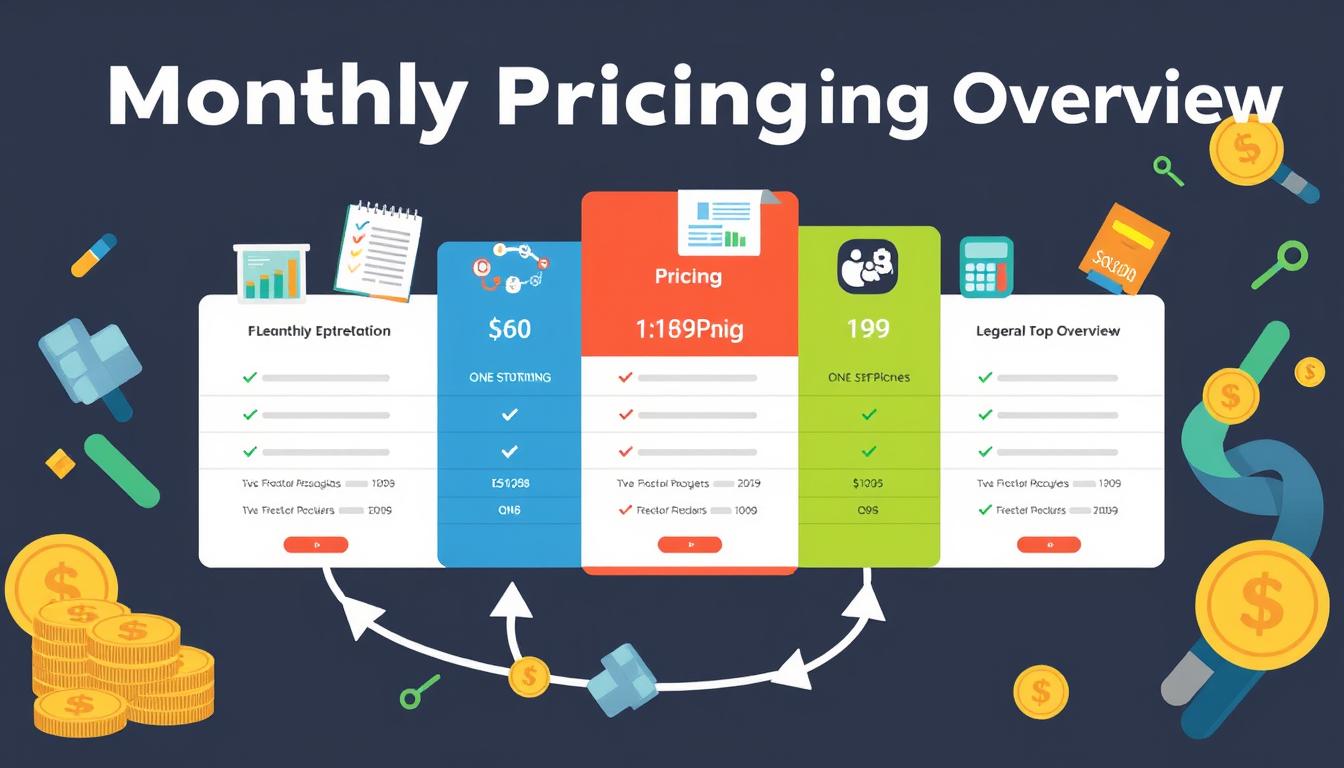
How much is quickbooks per month
Many users want to know the QuickBooks pricing for monthly costs. QuickBooks has various plans for different business needs. This lets users pick the right plan for their financial management.
What affects the QuickBooks monthly cost includes the QuickBooks edition, payment frequency, and extra features. This guide will explain the details of these plans. It will help you understand the costs of using QuickBooks for your business.

How does quickbooks work
QuickBooks is a key accounting software made by Intuit. It helps businesses manage their finances well. It works on a cloud-based platform, so users can access their financial data from anywhere.
This software makes tasks like bookkeeping, invoicing, and financial reporting easier. In this article, we’ll look at QuickBooks’ main features, its users, benefits, and challenges. We aim to help you understand how it can improve your financial management.

How do you record insurance payment in quickbooks
Recording insurance payments in QuickBooks is key for good insurance accounting. It helps business owners manage their money well and keep their books right. This is vital for the health of any business.
In this guide, we’ll show you how to record insurance payments easily. We’ll use QuickBooks guides and tips from accounting experts. This way, you can keep your financial records up to date.

How do you clock in hours in quickbooks desktop
In today’s fast-paced world, tracking time well is key for good payroll management. This article will show you how to clock in hours in QuickBooks Desktop. It’s a top accounting software that makes managing tasks easier. By learning how to track time, businesses can work better and pay employees right.
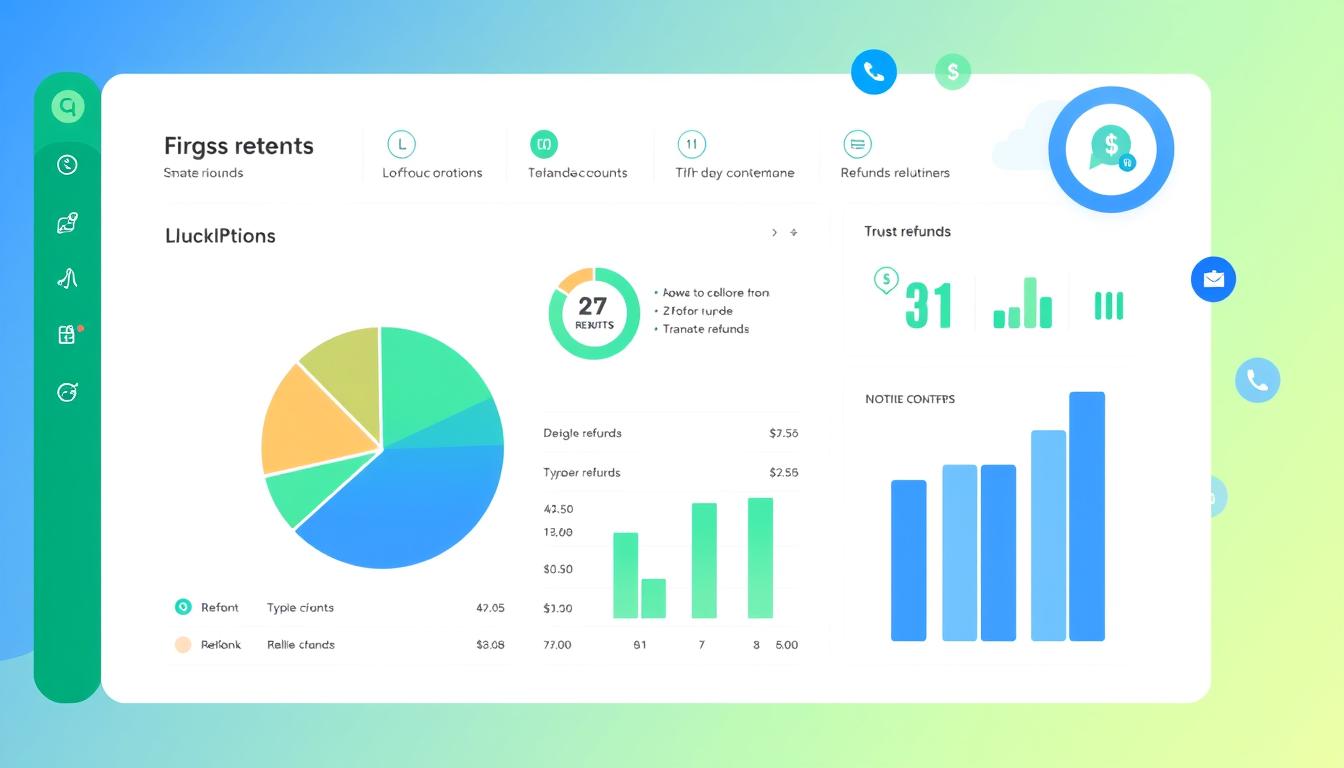
How are refunds categorized in quickbooks online
Knowing how to categorize refunds in QuickBooks Online is key for good financial management. It’s important to record refunds correctly to keep your finances clear. Businesses of all sizes can benefit from knowing how to do this right.
This knowledge helps make your financial records clear and accurate. It’s a basic step that can make a big difference.

Does quoteiq accept quickbooks online payments
Payment solutions are key in today’s business world. Many are looking into how platforms like QuoteIQ can improve their invoicing. A big question is: does QuoteIQ accept QuickBooks Online Payments? This article explores how QuoteIQ and QuickBooks Online Payments work together.
This shows how important it is to have good payment integration. It helps with cash flow and makes operations smoother. We’ll look at the benefits of using QuoteIQ with QuickBooks Online Payments. Plus, we’ll show you how to set it up.

Can you delete history under audit log quickbooks online
It’s important to know if you can delete entries from the audit log in QuickBooks Online. This is key for businesses that focus on financial accuracy and follow the rules. The audit log QuickBooks Online keeps a detailed history of changes to financial data. This ensures that all account activities are recorded clearly.
By tracking these changes, the audit log is crucial for good financial management. We will look into why the audit log matters and what happens if you try to delete its records. We’ll see how these actions impact your QuickBooks history.
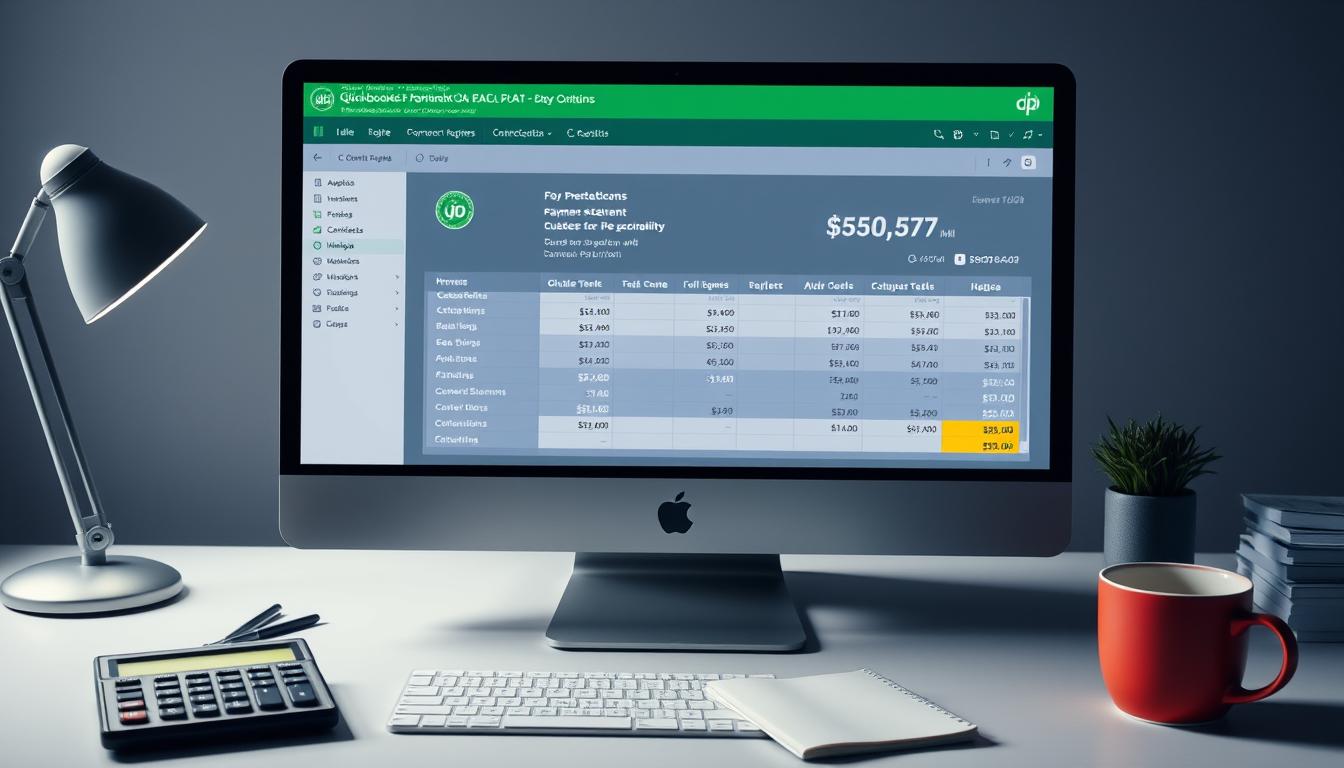
Can quickbooks recievepayment by statements rather that individual invoices
In today’s fast-paced world, businesses need quick and easy ways to handle payments. Many QuickBooks users wonder if they can pay by statements instead of invoices. This method makes accounting simpler for companies.
Using payment statements has big advantages over traditional invoices. QuickBooks helps businesses manage payments better. This article will show you how payment statements work in QuickBooks and how they can help your business.
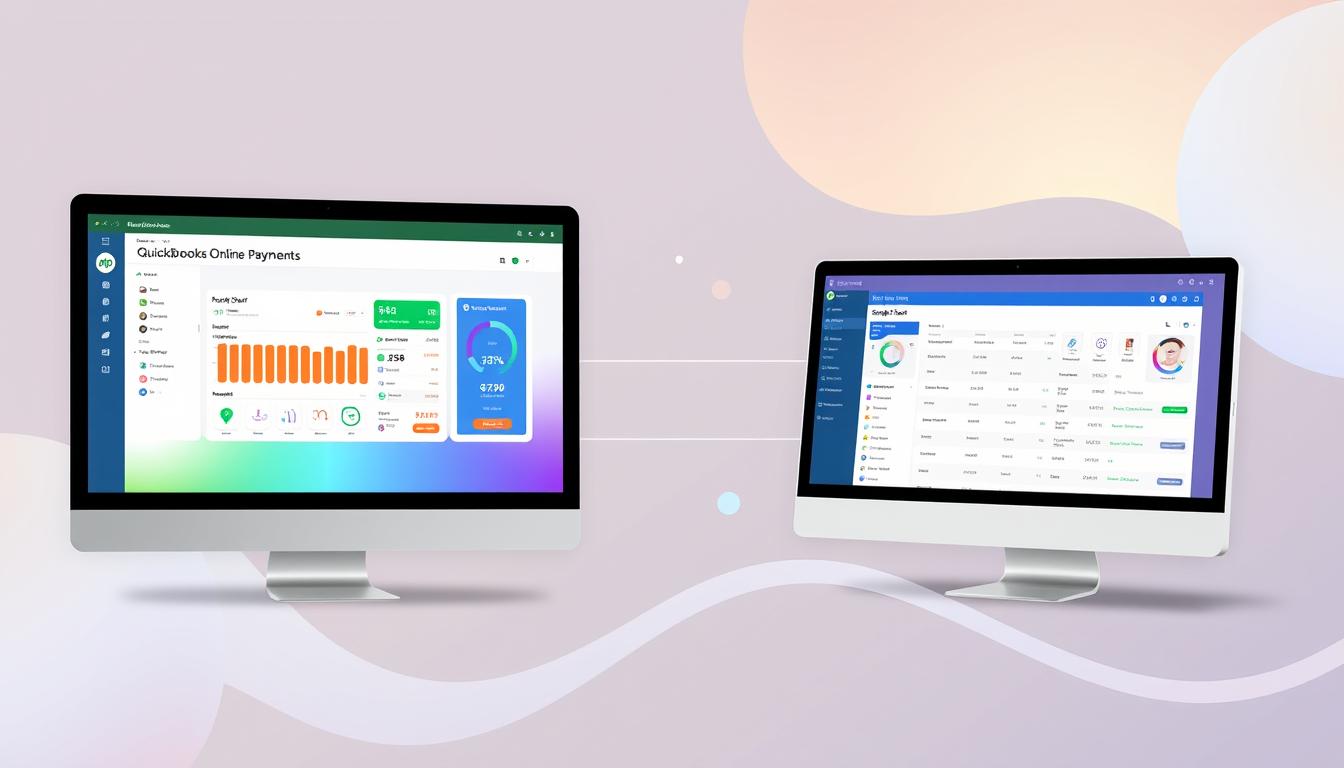
Can quickbooks online payments work with simple start
For small business owners, the question of whether QuickBooks Online Payments and QuickBooks Simple Start can work together is key. This integration is vital for managing finances effectively. It helps users handle transactions smoothly while using a basic accounting tool for solo businesses.
QuickBooks Online Payments lets users take payments online, making cash flow management easier. In this article, we explore how these two tools can boost efficiency for small businesses.